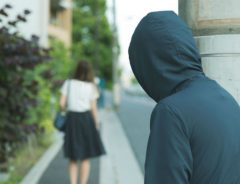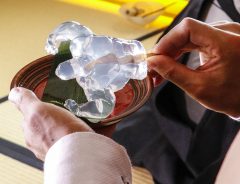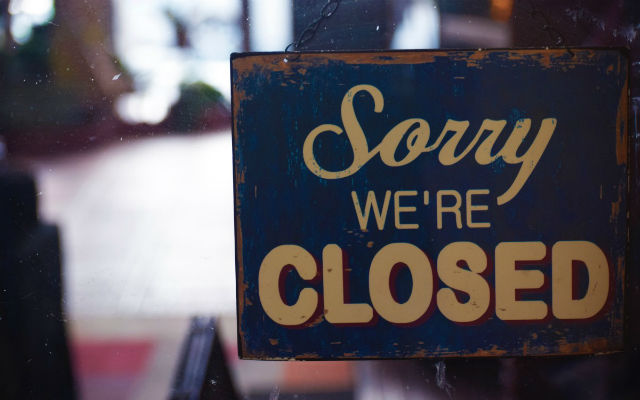- Tags:
- Cornavirus / Japan / Society
Related Article
-

Student Intern Encounters Adorable Obstacle During Training
-

Kanto Travel: Top 4 recommended spots for Christmas
-

Rare Two-Headed Snake Found In Osaka Is Alive And Doing Well
-

Star Wars Japanese Ink Warrior Paintings Give Darth Vader And Stormtroopers Samurai Portraits
-

Japanese model told to “talk it out” with stalker who came to her door by police
-

Japanese shirtless musclemen create jiggly buff traditional sweet at muscle tea ceremony



The COVID-19 outbreak has hit Japan hard. The first infection in the country was confirmed mid -January. As of writing, the number of documented cases is nearing 1500, including at least 19 deaths.
As officials scramble to contain the outbreak, Prime Minister Abe has come under pressure for mishandling the Diamond Princess cruise ship. After a passenger was confirmed to have the virus, the oceanliner containing 700 passengers was quarantined in Yokohama harbor. The virus spread throughout the ship, as staff likely unwittingly infected passengers.
Such criticism likely factored into the Prime Minister's recent decision to suspend the nation's schools throughout March. The cancellation was considered an aggressive move to limit the spread of the virus. There may be some truth to this, as children often contract infections at school, later on infecting family members at home.
Regardless, the sudden move sent parents scrambling. Many lamented that the cancellation was too abrupt to make arrangements. As the number of double-income and single-parent households has increased throughout Japan in recent years, this understandably puts parents in a difficult situation.
Cancelled Lessons
With public schools closed, the staff has little or no work. Teachers are being sent home, many with their compensation unclear. Private cram schools and language schools are following suit, canceling lessons and sending employees home.
Kyle S., an American teacher at a small English school, reported that he was notified by phone of his school's closing. "My manager called me early on Monday and said I would not be needed this week. The decision seemed rushed because the company recently sent out an email explaining that the school would remain open," he said.
With a large number of foreign language teachers in Tokyo and throughout Japan, it is unclear how they will be affected. Many are dispatch workers, contracted assistants, working several jobs, or otherwise have unconventional work arrangements.
“I’m not entirely sure what will happen financially,” Kyle continued. “My manager implied that I would not be compensated for the time off. I’m only a part-time teacher there, so I’m not sure if things like unemployment insurance apply.”
According to Nikkei Shinbun Newspaper, companies affected by the school closures may be eligible for government subsidies. Coverage also applies to full-time and part-time workers forced to remain home for childcare purposes. Per individual, the subsidy covers wages up to 8330 JPY a day, the article claims.
On the other hand, the General Union, a trade union that works closely with foreign laborers in Japan, reported that private schools were effectively firing teachers while denying the necessary partial compensation. According to the Labor Standards Law, the union claims, temporary layoffs must be compensated with 60% regardless of part-time or full-time status. For those affected, more detailed information is available here and here.
Shorter Retail Hours
Prime Minister Abe's February decision to cancel schools throughout March shocked working parents. The Japanese Times interviewed one Fukaoka mother about the school closings: “Our children will be staying at home the whole time, so I feel sorry for them. I doubt shutting down schools alone will have significance. Unless companies suspend their operations, parents could bring the coronavirus to their homes."
With teachers and students staying home, working parents have been forced to react. Many are reducing hours while they struggle to balance obligations. As Grape recently reported, Japanese businesses are notoriously understaffed amid a nationwide labor shortage. School closings will likely exacerbate this problem.
Retailers are responding by changing business hours. Major supermarket Life is pushing back store hours, a move to aid part-time employees with children. The chain, along with mall conglomerate AEON, is closing several stores nationwide. Restaurants like Yoshinoya are changing their menus during the viral scare. Stores are suspending harder-to-make dishes as skeleton crews struggle to service customers.
No Mass Gatherings
Due to COVID-19 scares, many musical acts are canceling appearances in Japan. Indie rock group The National canceled a pair of March dates, while other powerhouse acts such as Khalid and New Order followed suit.
Theme Parks and museums are also currently closed for business. The Tokyo National Museum announced it would be closed until March 16th, while the Kyoto National Museum, Kyushu National Museum, and even the Ghibli Museum remain empty. Tokyo Disney Resort and Universal Studios Japan have also been similarly affected.
Despite growing popularity, even pole dancers find themselves out of work. Instagrammer curlybaby_lilika lamented hard times recently on her account. The artist noted how the pandemic was effecting her emotionally as she remained unable to perform. She wished her followers well and hoped they would seize the opportunity to self-improve while isolated during the scare.
Like Lilika, other freelance artists are suffering from employment shortages. Crowdfunding website Campfire announced the start of a crowdsourced program for supporting those facing financial shortfalls. Aimed at performers, as well as event organizers and restaurant staff, the program waives fees on donations given to those affected.
Prime Minister Abe Mobilizes Aid
The government of Japan has announced massive aid packages in the fight against the pandemic. The aid intends to boost growth while preventing business closures and bankruptcies by small and medium-sized firms. The timing is paramount: numerous industries are facing sharp declines in revenue as tourists are increasingly absent throughout Japan.
Officials are also encouraging telecommuting. Although some doubt whether Japanese businesses are capable of implementing such systems, the move hopes to slow the spread of the respiratory disease. According to The Japan Times, the Abe administration is currently considering even further aid as the National Diet will likely soon grant emergency powers to the government.